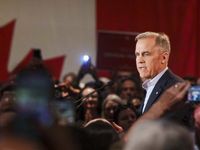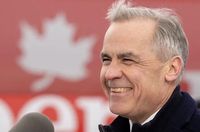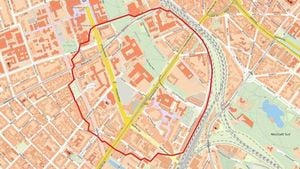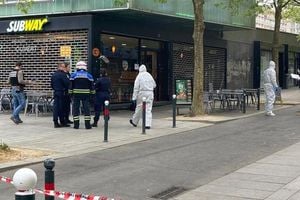As the federal election campaign heats up, leaders from Canada’s major political parties are making their way to Saskatchewan, a province that has largely leaned Conservative in recent years. On April 9, 2025, Liberal Leader Mark Carney and NDP Leader Jagmeet Singh are set to hold campaign events in Saskatoon, marking a significant moment as neither leader has yet visited the province since the campaign began more than two weeks ago.
Jagmeet Singh will first speak at the First Nations Summit in Vancouver before heading to Saskatoon for a campaign event, where he is expected to outline his party's vision and connect with local supporters. Meanwhile, Mark Carney will kick off his day in Calgary, meeting with young supporters and volunteers before making his way to Saskatoon, where he will deliver remarks aimed at energizing the Liberal base in what has been a tough battleground for the party.
Saskatchewan comprises 14 federal ridings, and the Conservatives have dominated these seats in recent elections. In 2019, the NDP lost two seats and the Liberals lost one to the Conservatives, further solidifying the latter's hold on the province. However, recent polling suggests that the political landscape may be shifting, at least in certain urban areas like Saskatoon.
According to a March 31 survey conducted by Liaison Strategies, the Conservative Party leads with 43 percent of the vote in Saskatoon, while the Liberals are close behind at 39 percent. The NDP, while trailing, still holds a respectable 10 percent. David Valentin, the principal at Liaison Strategies, noted that Saskatoon has emerged as a sub-region where the Liberals are outperforming expectations, largely at the expense of the NDP. This trend is particularly significant given the recent redistribution of ridings, which has created three seats entirely within city limits.
Political analysts suggest that both the NDP and Liberals are eyeing Saskatoon West as a potential gain. This riding was previously held by the NDP in 2015, a year when the Conservatives performed poorly. However, with the Conservatives currently showing strength, the likelihood of the NDP reclaiming this seat is uncertain. Daniel Westlake, an assistant professor of political studies at the University of Saskatchewan, expressed skepticism about the NDP's chances, stating, "I don’t think it’s a riding that the NDP wins in an election like this, where the Conservatives are doing reasonably well."
Westlake further explained that the absence of major party leaders in Saskatchewan until now should not be interpreted as a lack of interest. Instead, it reflects the strategic campaign focus on regions with more competitive seats. He pointed out that the Liberals might have a chance in Desnethé–Missinippi–Churchill River, but beyond that, the chances of picking up additional seats in Saskatoon and Regina are slim unless the national Liberal support surges.
On the other side of the political spectrum, Conservative Leader Pierre Poilievre has been campaigning vigorously, particularly in Ontario, where he reiterated his commitment to a tough-on-crime approach. In Sault Ste. Marie, Poilievre defended his proposed three-strikes law, which would make individuals convicted three times of serious offenses ineligible for bail, probation, parole, or house arrest. These offenders would face a minimum prison term of 10 years and could even receive life sentences. "Under my watch, the only way for repeat offenders to obtain their freedom will be through spotless behavior and clean drug tests during a lengthy minimum prison sentence with earned release, dependent on making real progress in improving their lives, such as learning a trade or upgrading their education," Poilievre stated.
Despite his firm stance, some legal experts have raised concerns that these crime policies may conflict with constitutional protections. This echoes similar issues faced by the Conservative government under former Prime Minister Stephen Harper, where certain crime measures were struck down by the courts. Nevertheless, Poilievre remains optimistic that his policies will resonate with voters, particularly in Saskatchewan, where crime rates and public safety are pressing concerns.
As the election date of April 28 approaches, the political landscape remains fluid. National polls show the Liberals currently leading the Conservatives by six points, a statistic that could shift as candidates ramp up their campaigning efforts in the coming weeks. With the stakes high, the attention of party leaders will undoubtedly remain focused on Saskatchewan, a province that could play a pivotal role in determining the outcome of the election.
With the Liberal and NDP leaders making their presence felt in Saskatoon, the dynamics of the race could change dramatically. Voter sentiment is crucial in this tightly contested region, and the upcoming events will serve as a litmus test for the effectiveness of each party's messaging and strategies. As the campaign progresses, observers will be keenly watching how these engagements influence voter turnout and support.
In summary, the April 9 events in Saskatchewan will be critical for both the Liberals and NDP as they seek to reclaim ground lost to the Conservatives in previous elections. With the federal election just weeks away, the pressure is on for all parties to solidify their bases and sway undecided voters.





